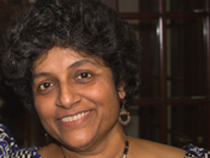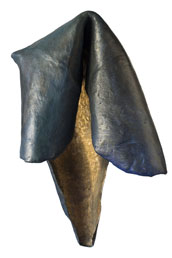Egypt and Humanism
It is not very trendy to be a humanist these days. In the face of escalating global conflict, regional crisis, environmental degradation, economic uncertainty and the resulting political disenchantment, it is all too easy for institutions and individuals alike to be disillusioned and cynical. It was refreshing, therefore, to meet someone who still very much believed in the redemptive power of the human spirit. I refer to Egyptian writer, Alaa Al Aswany, humanist par excellence, who graced the 13th Blue Metropolis Festival in Montreal, held in April 2011.
“The human factor is the most important factor in literature because it is this … that gives the possibility for the Western [aka international] reader to feel the drama in the book,” he once said of his surprise international bestseller, The Yacoubian Building, published in 2002.
,In an interview with Eleanor Watchel for CBC’s Books and Company at the Blue Metropolis Festival, Aswany described revolution chiefly as a human phenomenon because it means that people are in the streets willing to die for freedom and justice, and, in that moment, they become much better people. They believe in and try to reclaim the collective dignity of the people in a very direct and daring manner.
“At some point ‘I’ becomes ‘we’ and people don’t see themselves as individuals any more,” he added. Pointing to the difference between revolution and protest, he said that the former is about wanting to fundamentally changing the system; the latter is about specific groups of people asking for particular rights or benefits.
Aswany has been part of the pro-democracy movement for over 15 years, writing newspaper columns criticizing the now fallen, Mubarak regime. He is also a member of the politically active Kifaya (Enough) movement that held regular salons in Cairo, to discuss political issues, under adverse conditions.
He admits to an elite education and an upper middle-class background. Born in Cairo in 1957, his father, Abbas, was also a novelist, the recipient of the state award for literature in 1972, “when it was still respected.” Aswany believes that these advantages bestow upon him an even greater duty to inform people and spread ideas and knowledge.
He was called upon to make speeches, addressing millions of people, during the days when protestors took over Cairo’s Tahir square. One of his tasks was to critically analyze and deconstruct President Mubarak’s speeches and politicize people. It was here, he said, within range of sniper bullets which killed two people standing near him, that he came to truly understand the meaning of seemingly commonplace words like ‘people’ and ‘death’. Was he afraid, Watchel asked him? He would have expected to be, but he was not. “I just had this very strange feeling that I was living a very unique moment,” he said.
Despite the gravity of the subject matter, there were many humorous moments during the interview. He recounted how an old woman had come up to him and told him that she admired his writing. Then, pointing at a cigarette butt he had discarded on the ground, she said, “Pick that up. We are building a new Egypt. Don’t you think that our new Egypt should be clean?”
There were other light moments during that chat. While he was still writing it, he got up one morning and went back to working on Yacoubian Building, discovering that two of his characters, who had been having a Spring-Winter romance, had gotten engaged overnight. So he decided to congratulate them!
“At some point your characters become independent,” he said. His role then is to write down what he sees unfolding in the lives of his characters, seemingly without his own agency,.Aswany also spoke about the many times when he had to state that his protagonists’ viewpoint was not necessarily his own, especially when interrogated by Egyptian censors.
Aswany had been expecting the extraordinary revolution that took place in his country, because as a writer he feels close to the people and can measure their pulse. The need to maintain that connection is one of the reasons why he continues to practice as a dentist a few times a week even though he is established enough to write full-time.
Writers are urged to be persistent in to order to get published, but most don’t go through a decade long struggle, as he did. The powerful, state-run, Egyptian publishing houses rejected his work, telling him that his first novella insulted the country, asking him to cut out the first two chapters. He refused. In his desperation, he considered immigrating to New Zealand, at one time. Finally, a small independent publisher issued Yacoubian Building. The novel became a huge success in the Arab world and elsewhere. It was translated into 27 languages, made into a blockbuster Egyptian film and adapted for TV.
There is a real life Yacoubian Building in Cairo. In great detail, Yacoubian Building, the novel, describes the lives of ficitonalized people from different social strata who live there, giving the global readership a rare and intimate glimpse of contemporary Egyptian society. In spite, and also perhaps, because of his global appeal from a local place, Aswany does not like to be ghettosized as an Arab writer. “I’m against presenting literature on an ethnic basis. I am pushed, little by little, to be an Arab writer, but I prefer to think of myself as part of the [world] republic of literature. The ‘now’ topics are not so important. The human topics are the important ones …,” he says in an interview published in The UK Observer on 31st May 2009.
His second novel to be translated into English, Chicago, was published in 2007. The city where Aswany earned a Masters degree in Dentistry, and in he which he lived for 17 years, becomes a setting for this equally important work. Dwelling on the lives of Egyptian immigrants in the U.S.A., it received a less than enthusiastic critical response compared to Yacoubian Building – it is also said that it was badly translated – even though it became an international bestseller like Yacoubian. These successes were followed by a short story collection, Friendly Fire, in 2008.
A book review by the UK Independent witnesses Al Aswany’s humanity as reflected in that collection: “Some of the afflictions that Al Aswany recounts with all the empathy and poignancy at his command belong to humanity as a whole: bereavement, loneliness, ageing, the pains of longing and frustration in passions and professions alike. But much of the specific sorrow seems bound up with a rigid and hidebound society suffocating – as the author often says – from a dearth of democracy, of mobility, of opportunities to grow and flourish.”
His literary activism and the humanist breath of his writing seem to be making a difference. The old order in Egypt changeth; Al Aswany is optimistic about the future of his country. In spite of his left-leaning global concerns, he believes there is no danger of disruption or a political retrogression through the Egyptian Muslim Brotherhood group, who he said are not violent and can be easily integrated into the political system – much like a right-wing German or French political party for example.
Religious minorities like Coptic Christians, unhappy with the old regime, are also on the side of the revolution, and were active participants. In fact, Christians and Muslims, he said, helped and protected each other during the revolution. The army too did not “misbehave”, though they did make notable mistakes. They were overall peaceful, unlike the police force, which followed the murderous commands of the old regime. The real threat to the future will come, he said, from elements of the former regime – corrupt businessmen, former officers of the state security apparatus, politicians close to Mubarak, and so on.
As far as his political role in the revolution is concerned he said characteristically, “What I did is not separated from writing. A novelist must love people.” Al Aswany appears to be a Blue Metropolis favourite. He was also in attendance in 2010 and was interviewed by Watchel. This year he received the Al Majidi Ibn Dhaher Arab Literary Prize. Commemorating an entire body of work, this $5000 award is given to an outstanding Arab author by the Abu Dhabi Authority for Culture and Heritage. It is named after the Arab poet Al Majidi Ibn Dhaher, who lived in the late 17th and early 18th centuries.





No Comments so far ↓
There are no comments yet...Kick things off by filling out the form below.